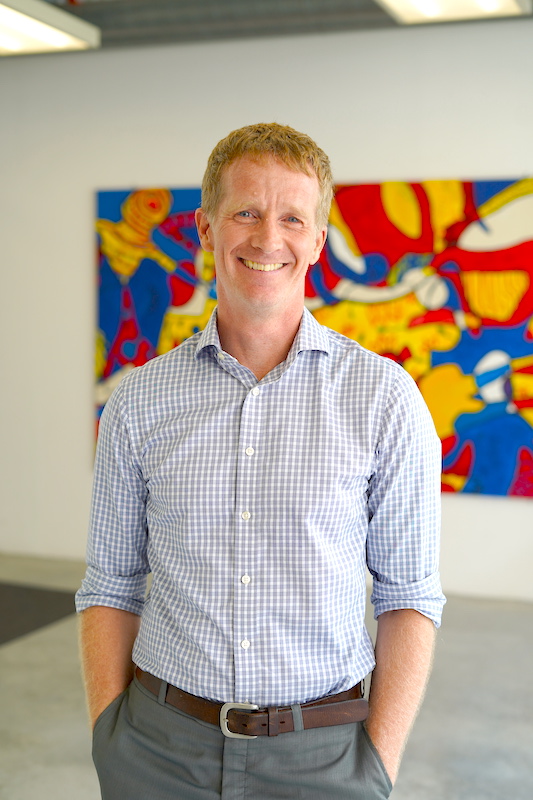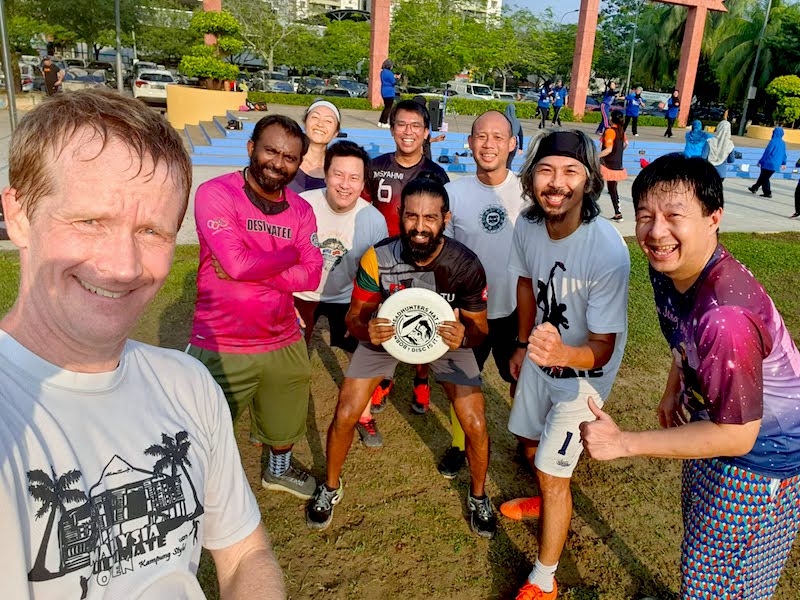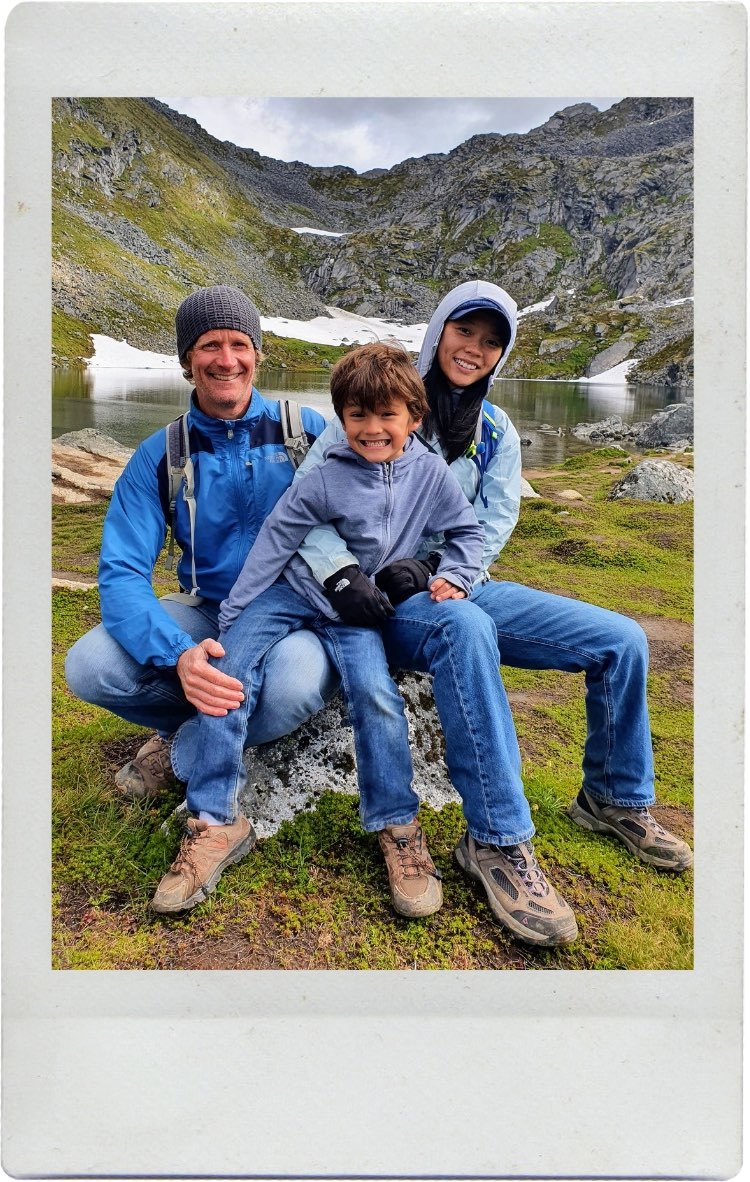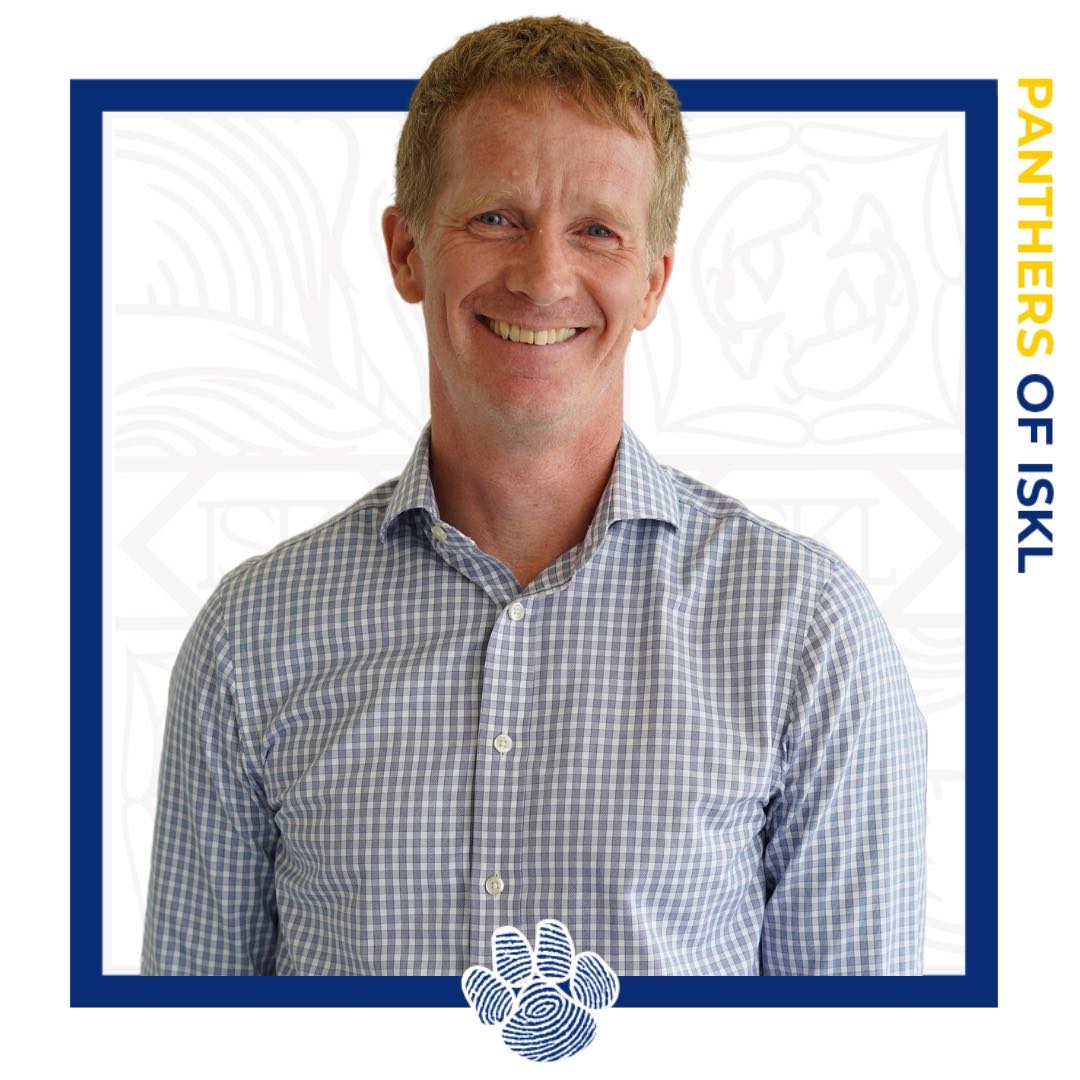“My inspiration for teaching comes from the students and knowing that they have to figure out many problems in the future – both scientifically, socially, and personally. Teaching general problem-solving thinking and reasoning, how to look at facts, build reasonable arguments based on those facts, and come up with solutions – I’m hopeful that they’ll find some of the solutions we will need.”
Hailing from Alaska, USA, Everette is a Middle School (MS) Math/Science teacher and has been at ISKL since 2007. Apart from being a Math teacher and being with his family, Everette enjoys playing guitar, rock climbing, ultimate frisbee and is picking up basketball again.
Here is Everette’s story:
 Do tell us more about yourself.
Do tell us more about yourself.
I was born in California but moved to Alaska when I was six months old, so I consider myself ‘born’ and raised Alaskan! Although I left for university, I went home after undergraduate and graduate school, so I lived in Alaska until I moved to Malaysia at the age of 35 years old.
When and why did you join ISKL?
I joined ISKL in August 2007. I was taking time off from teaching, and Tony Harduar, the Elementary School (ES) Principal, who had hired me out of university in 1995, called and said they needed a Middle School (MS) Math teacher in 10 days. I wasn’t honestly interested, but Tony had guided me in many decisions in my life, and I trusted him. Paul Chmelik and Mike Callan interviewed me on 20 July, and on 2 August got on a plane and moved to KL!
Can you tell us more about your position as the MS Math/Science Teacher? What are your daily activities?
Most of my time outside of teaching is spent with my team, trying to develop meaningful, engaging, and currently relevant experiences for students. We focus on getting students to act in the ways scientists (and engineers) and mathematicians would when solving problems. Giving students feedback on their work is another significant time commitment each day.
 Can you tell us something you are working on now that you are excited about?
Can you tell us something you are working on now that you are excited about?
I’m working on re-establishing who I am as a person to myself. For a long time, I was the Head of Math for MS, and I dedicated a considerable amount of time to my son. Still, I became so absorbed in those two roles that I was those two things – when people asked me what my hobbies were, I would say, “looking for math problems in the real world” and “spending time with my son.” Both were practical uses of my time, but that’s all I could say.
So now I’m playing guitar, rock climbing again, playing ultimate frisbee regularly, attending some small tournaments, and picking up basketball again.
What is the most challenging part about your job?
I would be surprised if anyone in any job right now would say anything except time management. Each year, perhaps thanks to technology, there is more to do, more emails to reply to, more information that you can learn and figure out how to share with students or get students to discover in some way on their own but without just giving them a link to an article.
Adding to that, we assess learning in class each day, so there’s always feedback to give, planning meetings, covering a lesson on occasion, and of course, for many people parenting – there’s just so much to do in a day for everyone.
Can you tell us more about your hobbies and interests? What do you do after work?
When I can find the time for myself or with my family, we go rock climbing, enjoy being out in nature (a bit easier in Alaska, but we get out in Malaysia as well), play a bit of music, and go for a swim.
 Who or what inspires you?
Who or what inspires you?
Firstly my wife and son. My wife has and continues to work to help me be a better person all of the time, and I want to be that better person for her and our son.
My inspiration for teaching comes from the students and knowing that they have to figure out many problems in the future – both scientifically (which will lean on math), socially, and personally. Teaching general problem-solving thinking and reasoning, how to look at facts, build reasonable arguments based on those facts, and come up with solutions – I’m hopeful that they’ll find some of the solutions we will need.
Best memory (or most memorable moment) so far working at ISKL?
When we first transitioned to Common Core Math standards in MS, many parents were apprehensive as they had received some bad and false press in the US. Even though the basic skills were the same, we shifted to a more problem-solving-based approach to teaching. So we invited parents in for “Conceptual Coffees” bi-weekly and had them attempt to solve the problems their children were doing in Grades 6-8. We had up to 40 parents in some sessions, doing hands-on math and problem-solving – it was great to open up the class and show parents how we were challenging kids in problem-solving and not just focusing on rote skills. I think it helped with the acceptance of the shift in teaching methods.
What does ‘“Know yourself, care for all and create a better world”’ mean to you?
It’s a more mindful, self-reflective version of The Melawati Way, which I think is a great motto to live by – if we all lived in the spirit of The Melawati Way, we’d be much better off globally.
Do you know of any student, teacher, parent, or staff who always have an anecdote to tell, love to share some insights into their passions and interest, or simply is a Panther through and through? Nominate them to be featured in our Panthers of ISKL stories by sending in your submissions here.


